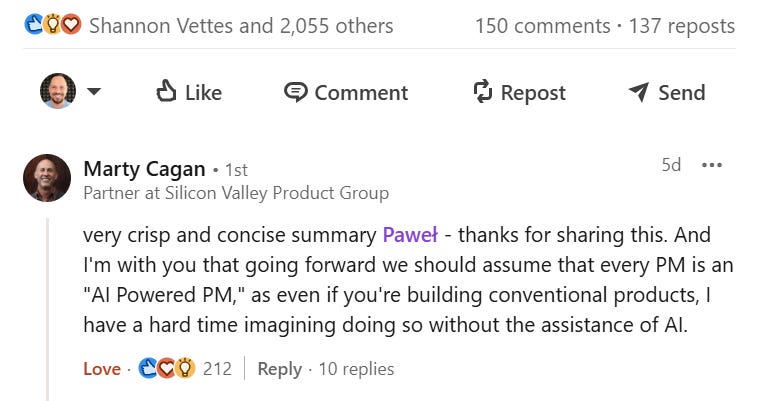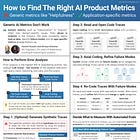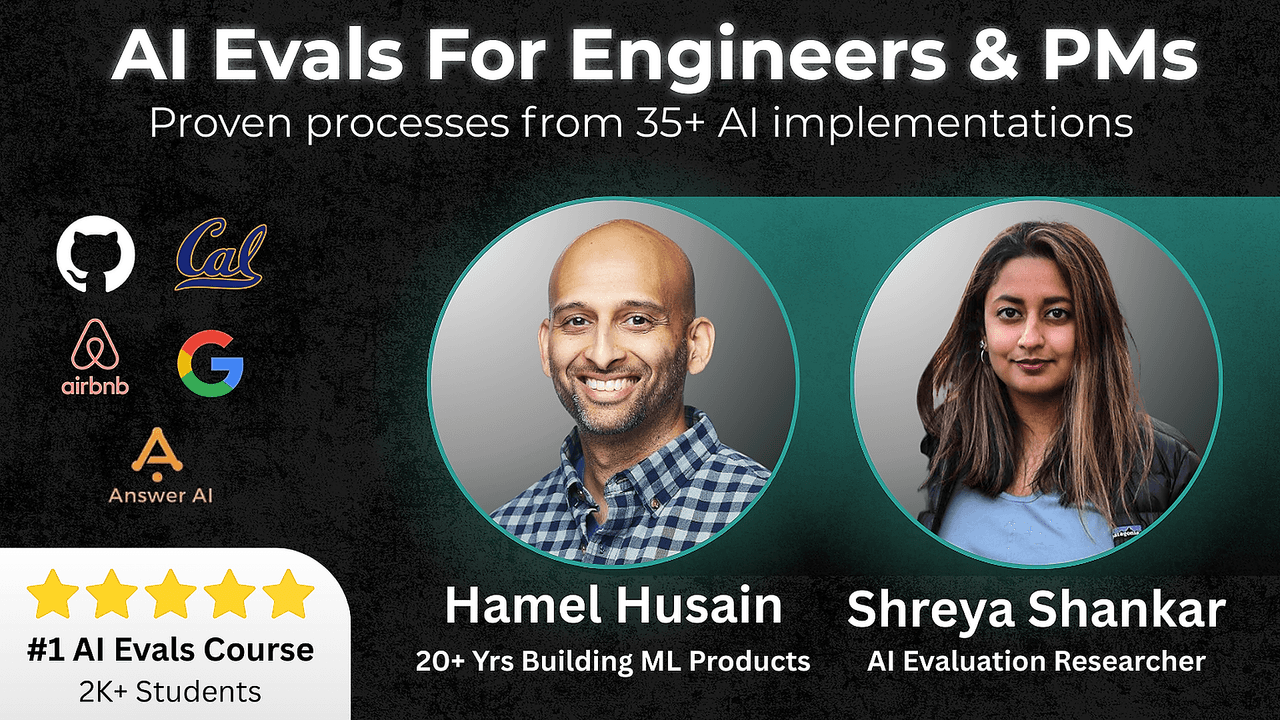WTF is an AI Product Manager?
Want to become an AI PM? Start here: practical resources, step-by-step guides, and everything you need to build key skills.
Hey, Paweł here. This is the free edition of The Product Compass Newsletter.
Every week, I share actionable tips, templates, resources, and insights for PMs.
This is the #1 AI PM newsletter for those who want to quickly learn by doing rather than listening or studying theory. No coding.
Consider subscribing or upgrading your account for the full experience:
The AI Product Manager is one of the hottest jobs on the market. But what exactly does "AI Product Manager" mean?
I’ve consulted the best AI experts I work with. And I love simple definitions:
An AI PM is a PM who works on AI-powered products or features.
Let’s start with the basics and discuss:
What is a Product Manager?
What is an AI-Powered Product Manager?
What’s Special About AI Product Manager?
[Edited] But first, a comment I received after publishing a summary of this post on LinkedIn 🙏
Now, let’s dive in.
1. What is a Product Manager?
We often say that when the product fails, it's the Product Manager's fault. But when it succeeds, it's thanks to the team effort.
Failure is something Product Managers deal with regularly. As Marty Cagan explains in Inspired:
„The first truth is that at least half of your ideas are just not going to work.”
That’s why product management is, at its heart, about managing risk. While collaborating with others, the Product Manager is especially responsible for the two risk areas:
Customer value: Do customers want this product or feature? Can we actually deliver on the value promised?
Business viability: Will it work for different parts of the business?
The most important activity for a PM is participating in Product Discovery. Its goal is to address key risks before implementation, to avoid wasting time and resources.
As part of Product Discovery, the PM works with the team (aka “Product Trio”) to:
Synthesize insights from different sources (e.g., interviews, analytics)
Identify opportunities (pain points, needs)
Explore ideas on how to solve them
Identify hidden assumptions
Perform experiments to test high-risk assumptions
The key PM competencies:
Strong communication skills (universally accepted as #1 competence)
Understanding the market, customers, and users
Understanding how the business operates
Data literacy and data intuition: Even with a data analyst on the team, you can’t completely outsource analytics.
You can learn more about Product Discovery from this post. Premium subscribers can also enroll in Continuous Product Discovery Masterclass for free.
2. What is an AI-Powered Product Manager?
Before we go further, I noticed that some tend to confuse:
AI-Powered Product Manager: A PM who uses AI at their work.
AI Product Manager: A PM who works on AI-powered products and features.
I have a strong opinion: Soon, there will be no such thing as a PM who doesn’t use AI virtually daily. We should be living and breathing AI.
Not to replace our thinking. But to boost our productivity and eliminate manual work.
Voices like this are becoming increasingly common:

Here are selected AI resources you can benefit from:
How to prompt:
How to automate your work as a PM:
MCP for PMs: How To Automate Figma → Jira (Epics, Stories) in 10 Minutes
See “Nine Best Practices When Building AI Agents” from AI Agent Architectures: The Ultimate Guide With n8n Examples. Creating and using simple automations can help you a lot. Using Claude Desktop is not enough.
How to use AI for prototyping:
How to Quickly Build SaaS Products With AI (No Coding) - you can use many of those elements to host your prototypes / store data in the database.
3. What’s Special About AI Product Manager?
First, your product involves AI. And the role is a bit more technical.
You still don't need a CS degree. But unlike traditional PMs (should), AI PMs must understand the technology and develop an AI intuition.
3.1 How to Develop AI Literacy and AI Intuition
It makes no sense to dive deep into statistics, Python, or loss functions. But you must understand the basic concepts like Neural Networks, Transformers and LLMs.
Next, depending on the product, you must understand terms like prompting, fine-tuning, RAG, AI agents, and MCP servers.
My experience tells me that the best way to learn those is by doing:
Check our archive for practical, step-by-step guides: AI Product Management.
3.2 A Critical Role of AI Evaluation Systems
A new element is AI evals. A robust AI evaluation system:
Answers the question: "Does this product actually work?"
Helps your team measure, iterate, and improve in quick cycles.
Many PMs still don’t realize that it’s not just AI engineers who need to evaluate LLMs.
Unlike traditional unit tests, AI evals are closely related to the PM's risk areas we discussed earlier (customer value, business viability).
Everyone understands that a PM needs to be data-literate. Sometimes we work with analytics, funnels, cohorts, etc. daily.
Similarly, as an AI PM, even if supported by others, you should regularly:
Look at the data (LLM traces)
Label data
Perform basic error analysis (e.g., undesired behaviors)
Experiment with prompts
It's the best way to build intuition and take full ownership of your risk areas.
You can learn more about AI evals from those posts:
To dive deeper, I highly recommend the AI Evals For Engineers & PMs cohort-based course:
2,000+ students so far. #1 on Maven. And I agree with Teresa Torres:

An extra cohort starts on Oct 16.
A special $1,050 discount for our community:
Conclusion
Becoming an AI Product Manager isn’t rocket science.
Like any PM, you need to:
Understand Product Discovery to manage the risks.
Become a domain expert: understand your market, customers, and users.
Own business viability by understanding how your company operates.
On top of that:
Develop deep AI literacy and intuition. I recommend our step-by-step guides and weekly office hours. Bonus: You will build an AI PM portfolio.
Take responsibility for working with AI evaluation systems. This requires domain expertise and can’t be delegated to QA or AI engineers.
Hope that helps!
Thanks for Reading The Product Compass Newsletter
It’s great to explore, learn, and grow together.
Expect two extra posts before the next Saturday.
Have an awesome weekend and a fantastic week ahead!
Paweł










Pavel, will there be a unified masterclass that combines all these AI lessons from you? AI is evolving so quickly that it would be great to have everything in one place if that becomes possible. Thank you for your articles(Read mostly all, except some AI)